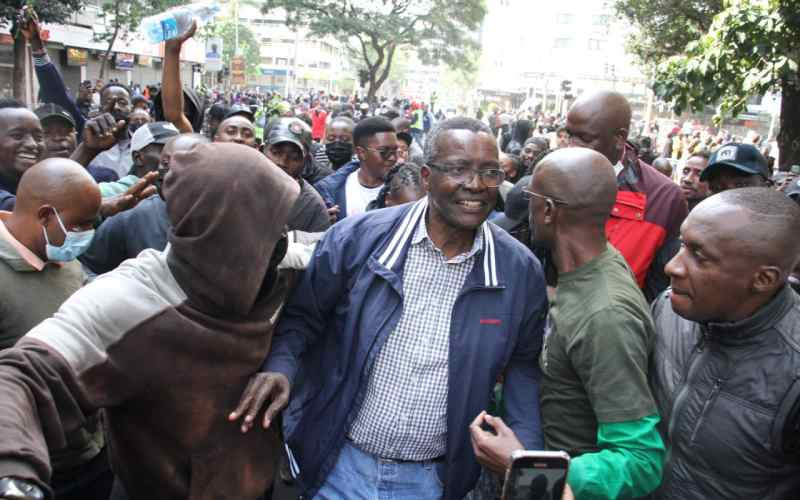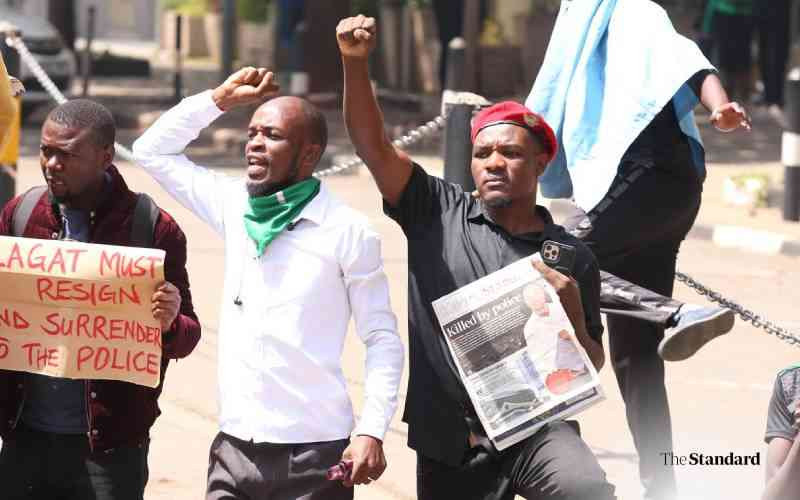Now Kenyan Government Restricts Travel and Tightens Security Ahead of Saba Saba Protests, Raising Concerns Over Human Rights - Travel And Tour World
Monday, July 7, 2025

Ahead of the anticipated Saba Saba protests on July 7, 2025, the Kenyan government has faced international scrutiny for actions taken to curtail citizens’ freedom of movement. The government’s move to block hundreds of Kenyans from traveling from Mombasa to Nairobi, particularly targeting youth attending the Diani Summer Tide Festival, has sparked significant human rights concerns. Activist Hussein Khalid, who spoke out about the situation, has condemned these measures, labeling them as a gross violation of constitutional rights.
The closures and travel restrictions have drawn the attention of global human rights organizations, raising questions about the state of political freedoms in Kenya and the government’s handling of protests.
The Saba Saba protests, now a staple of Kenya’s civil rights movement, are set to commemorate the 35th anniversary of the 1990 pro-democracy demonstrations, which played a pivotal role in challenging the authoritarian regime of President Daniel arap Moi. The significance of these protests extends beyond the local context, with the anniversary marking a broader regional push for democracy, accountability, and governance reform in Africa.
This year’s protests are expected to see an influx of younger activists, particularly from Generation Z, who have become vocal in demanding better governance, an end to police brutality, and economic reforms in a country grappling with rising corruption and public unrest. With the global focus on Africa’s democratic progress, Kenya’s protests have caught the attention of international observers, including the United Nations, who have previously expressed concerns over the use of force against protesters in similar demonstrations.
In the past, protests in Kenya have been marred by violence and clashes, as seen in the June 25, 2025 demonstrations, which commemorated the 2024 anti-tax protests. The violent events, which led to significant loss of life and injuries, have heightened fears of further unrest as the Saba Saba protests approach. Given the increased global focus on human rights in African nations, the Kenyan government’s handling of these protests is under intense scrutiny.
In preparation for the July 7 protests, Kenyan security agencies have been placed on high alert. The government has reportedly deployed military units and increased police presence, particularly in Nairobi, where past protests have led to road barricades, the use of razor wire around government buildings, and severe restrictions on vehicle movement. These heightened security measures have been seen as a reaction to the violence and unrest of previous protests.
Globally, concerns have been raised about the impact of such measures on civil liberties and the freedom of expression. Human rights organizations like Amnesty International and Human Rights Watch have called for the Kenyan government to allow peaceful protests and refrain from using excessive force. The restriction of freedom of movement for Kenyan citizens, as seen with the police stopping travelers at the Dongo Kundu bypass near Mombasa, further complicates the situation. By targeting specific groups and curbing their right to travel, the Kenyan government risks sending a message that freedom of movement and assembly is being curtailed under the guise of maintaining public order.
The National Police Service (NPS) has responded to the growing tensions by stating that it is unaware of any formal protest applications for July 7 and has urged organizers to seek the necessary permits to avoid legal issues. Police spokesperson Muchiri Nyaga reiterated that unpermitted protests often lead to chaos and property destruction, which the government aims to prevent.
However, international observers and local activists have pointed out that the government’s response to the protests and its proposals for restrictive laws, such as the Assembly and Demonstration Bill, 2024, could be seen as an attempt to stifle the fundamental rights of the people. This bill would impose severe restrictions on protests, including banning them within 100 meters of key government institutions like Parliament and the State House.
The bill has faced criticism both domestically and internationally, as it undermines constitutional rights guaranteed by Article 37 of Kenya’s Constitution, which protects the freedom to assemble and demonstrate. The United Nations Special Rapporteur on the right to peaceful assembly has expressed concerns about the potential for this bill to be used to restrict peaceful protests, especially in a nation that has historically faced challenges in maintaining democratic governance.
The international community, particularly foreign governments and organizations that promote democracy and human rights, are closely monitoring the situation in Kenya. The European Union, in particular, has voiced concerns about the use of force against peaceful protesters, urging the Kenyan government to respect its international obligations under the Universal Declaration of Human Rights.
Kenya’s protests have implications not only for the country’s internal politics but for the broader African region as well. The country’s ability to manage dissent and political expression could serve as a model for other African nations where similar movements are gaining momentum. The success or failure of these protests could inspire more widespread action in the region, influencing how governments across Africa handle growing demands for political change.
The outcome of the Saba Saba protests may also impact Kenya’s standing in the global community, particularly with regard to foreign investment and international relations. The Ministry of Trade and Industry has already expressed concerns that ongoing unrest could deter potential investors from entering the Kenyan market, especially in light of past instability. Kenya’s economic future may depend in part on how the government balances the demands of its citizens with the need for stability and international confidence.
As the protests approach, businesses in Nairobi are preparing for potential disruptions. Several businesses have opted to close or move their stock to safer locations to avoid damage, while schools have advised parents to keep children at home on July 7, citing safety concerns. The fear of violence and property destruction during the protests has made it difficult for the public to plan for the day, with many businesses taking preventive measures to safeguard against any potential loss.
Despite these disruptions, Kenyan civil society and political organizations are calling for restraint from both the police and the government. The National Council of Churches of Kenya (NCCK) has joined calls for a peaceful protest and for the police to ensure the protection of the right to demonstrate. This has sparked a broader debate about the future of civil liberties and democracy in Kenya, as well as how the international community will respond to events as they unfold.
The upcoming Saba Saba protests in Kenya are about more than just domestic issues; they represent a broader struggle for democracy, accountability, and human rights that resonates across Africa and the world. With global attention focused on Kenya, the government’s response to these protests will not only shape the country’s political future but could also influence how democratic movements evolve across the African continent.
As security measures intensify and the international community keeps a close eye on developments, it remains to be seen how the Kenyan government will balance the need for stability with the constitutional rights of its citizens. The world is watching, and the outcome of the protests may have lasting repercussions on Kenya’s political landscape, its relations with international partners, and its role as a beacon of democracy in Africa.
«Enjoyed this post? Never miss out on future posts by following us»











